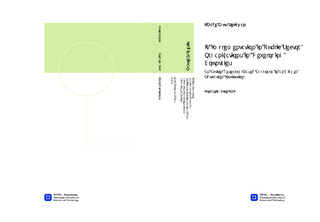| dc.description.abstract | Effective IT is vital in organization in the low resource settings of developingcountries. This also applies to public sector organizations. However, little researchhas been reported regarding IT implementation in higher education institution.Meanwhile, it is widely believed that information technology could boostdevelopment, strengthen and increase the competitiveness of the university amongothers.The focus of this report is to explain as well as improve the IT implementationprocess in public sector organizations, particularly in higher educationinstitution in developing countries. The motivation for studying the ITimplementation process is to be able to understand the underlying aspectsof the successful of IT implementation process in developing countries whichthen give the possibility to make any improvement on the organization.An action research approach in combination with case study method has beenperformed in one of Indonesia's public universities. Empirical data collectionwas done to support the research investigation including two-times of field work inwhich one of them was getting involved into the organization activity, two roundpre and follow-up semi-structural interviews, direct observation, discussion,meeting, document analysis and previous involvement in the institution. AnOnline Questionnaire was also performed to obtain the perception of researchparticipants regarding the proposed tools.A one initial cycle of action research was done and the study found severalfactors that possibly hamper the implementation process in the university andsuccessfully formulated several strategies that can be used to cope with thosefactors, e.g. limited human resources, lack of management commitment, lack ofclear job description among staffs, lack of appropriate planning and strategyfor systems development and implementation, ineffective communication &coordination, lack of funds, lack of rewards, and government policies.Intervention is then performed by introducing software project managementinto the organization as one of the formulated strategies. Even though theoutcome of the interventions not clearly visible at this time, it gives amotivation for the continuity of the interventions.In conclusion, it can be said that among other public sector organizations indeveloping countries, they share common barriers and challenges in general, andto deal with those challenges require substantial time and appropriate approach. | nb_NO |

